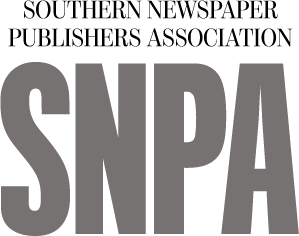Obama Department of Labor declares war on overtime exemptions
Attempting to downplay the impact of its action, the Department of Labor refers to its recent Notice of Proposed Rulemaking ("NPRM") as merely an update. The new rule, if finalized, would dramatically increase the salary threshold for the overtime exemption of executive, administrative and professional employees under the Fair Labor Standards Act.
The NPRM does not attempt to alter the duties required to meet the test; it addresses only the salary level. Currently, the salary threshold is $455 per week – that is, the manager or supervisor must earn at least $455 per week to qualify as overtime exempt. Under the proposed rule, the figure would more than double to $921 per week, or $47,892 annually.
What does this mean? For example, newspapers lawfully treat circulation department district managers and other supervisors as overtime exempt under the FLSA. However, in many cases, those positions are not paid a salary of at least $921 per week. The choice under the NPRM will be either to raise the employees' salaries to keep them overtime exempt, or require them to use timecards and pay overtime for all hours worked in excess of 40 per week.
Let us say a supervisor currently works an average of 50 hours per week. Ten hours of overtime may significantly impact your cost structure. One option would be to reduce the individual's hourly rate of pay to a level that, coupled with 10 hours of overtime, would equal the salary he/she earned prior to the change in salary threshold.
Part of the administration's strategy with NPRM may also be to assist organized labor in union organizing campaigns. Often there is an issue about whether one is or is not a supervisor under the National Labor Relations Act. One of the factors indicating that a person is not a supervisor is the fact that he/she is paid hourly, rather than a salary. If a publisher opts to start treating these supervisors as hourly employees, expect the unions to make that argument in the event of an organizing campaign.
Each company should study the new rule and determine how to react if it becomes final and effective. We are months away from an effect date. Start planning now.
I urge you to contact your elected representatives in Congress and ask them to do whatever they can to stop the proposed rule.
Quickie election rule update
The NLRB "quickie election" rule went into effect on April 14. This is a moving analysis, but between April 14 and June 5, there were 222 election petitions filed with the National Labor Relations Board. The average number of days between petition filing and the scheduled election was 24.8 days.
As of June 5, Phoenix, Ariz., so far has an average election period of only 18 days – significantly ahead of other NLRB regional offices. Region 22 in Newark, N.J., conducted one election in nine days, the shortest so far. Region 4 in Philadelphia conducted an election in 10 days. Eight regional offices conducted elections in 14 days or less. Region 5 in Baltimore conducted two elections in 14 days.
Thus, so far under the new rule, employers have an average of 17 fewer days to prepare for the election. Prior to the new rule, employers had, on average, 42 days from petition filing to the election.
Uber drivers may be employees
Uber driver Berwick filed suit, claiming she was owed wages, reimbursement for expenses, liquidated damages and waiting time penalties because she was actually an employee of the company, rather than an independent contractor. The hearing officer found Berwick to be an employee, based upon the amount of control Uber exercised over her activities.
The hearing officer found the following factors as evidence of control:
- Drivers were not allowed to accept tips.
- Drivers were not guaranteed a cancellation fee, and had no control.
- Drivers were not able to negotiate the price of a trip with the customer.
- Drivers underwent extensive background checks.
- Drivers, if they wished, were provided iPhones at a discounted, leased rate to use the Uber application.
- Drivers were required to maintain a customer satisfaction rating of "4.6 or greater."
- Drivers were not allowed to solicit for their own transportation services outside of Uber.
- Vehicles could not be more than 10 years old.
- Once the driver accepted a rate, he could not then reject picking up that customer.
The hearing officer awarded expenses and interests to the claimant, but denied the waiting time and wage claims because the driver did not present sufficient evidence on these issues.
In O'Conner v. Uber Technologies, Inc., a similar case in the U.S. District Court for the Northern District of California, the judge denied Uber's request for a grant of summary judgment. The judge noted that too many facts were in dispute, and Uber had not overcome the presumption that the drivers performing services for it were employees, rather than independent contractors.
In denying summary judgment, the U.S. District Court noted that certain drivers had to have black colored cars for the Uber Black Car Service, as well as the fact that drivers were required to pass a "city knowledge" test and have an interview with an Uber employee. Additionally, the court discounted the notion that Uber is a technology company, rather than a driving company, noting that its tagline indicated that Uber was everyone's private driver.
The court concluded by noting that these issues would have to be presented in full because, as a matter of law, Uber drivers were performing a service to Uber, and are thus Uber's presumptive employees. The court stated that the amount of control in picking up and dropping off passengers and other aspects of the claimants' duties indicated that there were substantial material issues of fact, rendering summary judgment inappropriate.
The Berwick decision is on appeal, and the O'Conner case is still at trial.
"WTF" union buttons approved by the board
The NLRB upheld the decision of the ALJ, in finding that union buttons were not offensive and could not be banned. The union had two groups of employees: one group worked exclusively inside customer homes, and another that sometimes worked in customer homes. There was a dress code and appearance policy that prohibited wearing apparel other than official company logos on company time. This policy was not consistently enforced.
The union began distributing campaign buttons and stickers, stating phrases such as "WTF, Where's the Fairness?" and "CUT the Crap! Not My Healthcare." After these buttons were issued, the company refused to allow certain technicians to be dispatched to the field, unless they removed the buttons and stickers. Those who refused were sent home and not paid for time on those days; they were charged with unauthorized absence.
The board found that the company's suggestion of profanity or double entendre was not sufficient to render the buttons and stickers unprotected because the buttons clearly spelled out what the acronyms meant in full text, and were plainly visible. Further, the board noted that the company did not uniformly enforce its dress code and appearance policy, as other employees were not disciplined for wearing similarly sized buttons and stickers in the past. Additionally, the board found that the buttons and stickers might be questionable in taste, but not overtly vulgar or obscene, and wearing them remained protected activity.
Regarding a button that referenced Proposition 32, the "Paycheck Protection" initiative, the board found that there was not confusion that the company was endorsing or going against Prop 32, and that this was not speech so purely political or so remotely connected to the concerns of employees as to be beyond the protection of the clause.
The board ordered the company to stop banning the buttons and disciplining the employees, and to make the employees whole for their lost earnings resulting from their refusal to take off the buttons.
 |
L. Michael Zinser is the founding partner of The Zinser Law Firm in Nashville, Tenn. The firm, which has a heavy concentration of clients in communications media, represents management in the area of labor and employment. Zinser can be reached at (615) 244-9700 or mzinser@zinserlaw.com.






